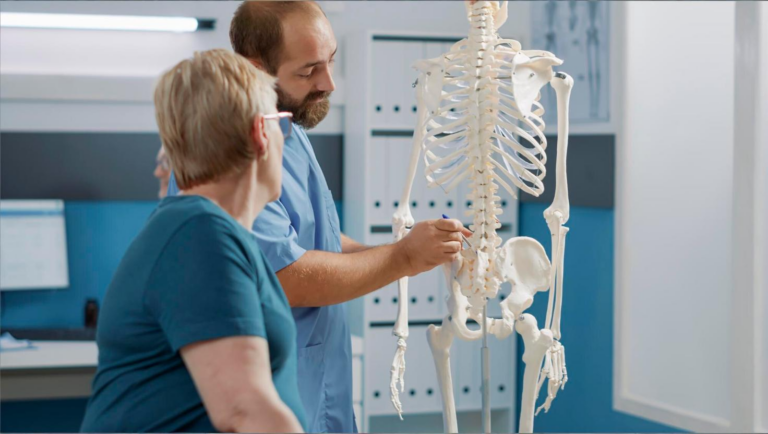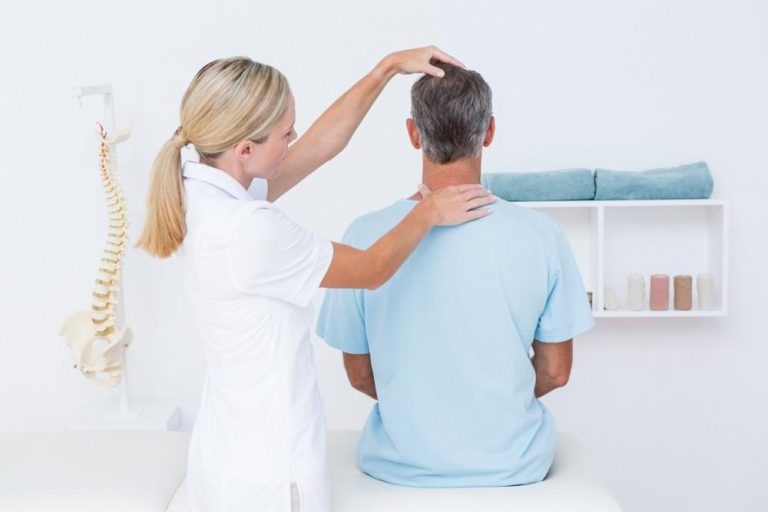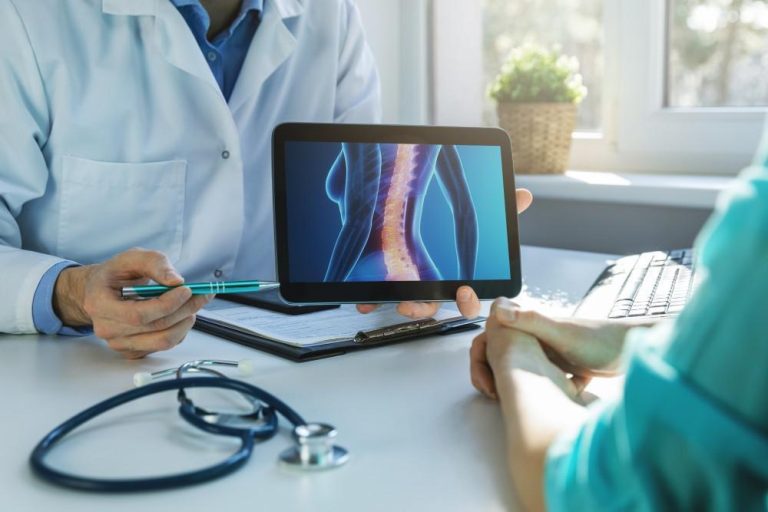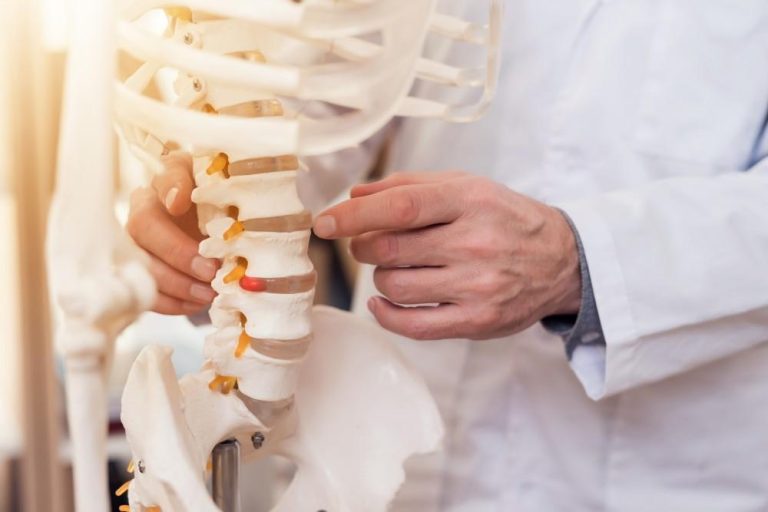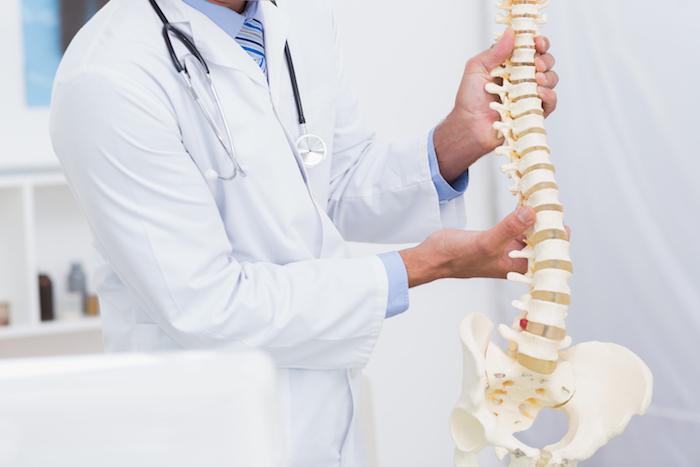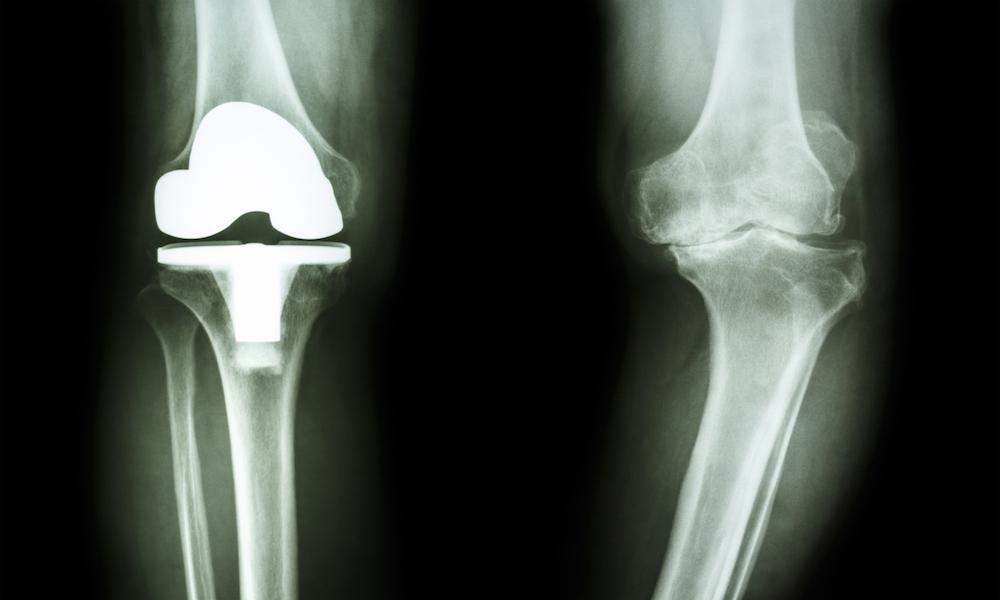
Low bone mass and osteoporosis affects more than 40 million Americans age 50 and over. Many factors influence your risk for osteoporosis, some of which are outside of your control, such as age and genetics. The good news is you can control diet and lifestyle risk factors and implement a strategy to keep your bones strong as you age. Here are some of our top bone-protecting tips.
Maintain a healthy weight
Being either underweight or overweight is detrimental to bone health. When you’re too small, your bones are at risk of becoming thin and brittle. When you have excess weight, your body can store extra fat in places like your bone marrow, making your bones weak and prone to breaking. Take steps to maintain a healthy body mass index between 18.5 and 24.9.
Engage in the right exercise
A combination of resistance training and weight-bearing aerobic exercise is proven to boost bone mineral density and lower your risk of osteoporosis. The thicker your bones are, the less vulnerable they are to fractures. You don’t need to become a bodybuilder either. Just 20 minutes of strength training with small amounts of weight and 15 minutes of weight-bearing cardio exercise like walking or climbing stairs is enough to protect your bones.
Cut back on cola and coffee
It’s a good idea to put coffee and cola on the back burner if you’re a woman over the age of 65. Scientists haven’t pinned down the exact mechanism, but cola and coffee appear to have a negative effect on bone mineral density in women. Moderate amounts of these beverages are unlikely to cause a problem, but cut back if you’re having several cups a day.
Eat plenty of fruits and vegetables
Eating a diet rich in fruits and vegetables reduces your risk for chronic diseases — and it turns out your intake also impacts your bones. There’s no doubt that fruits and vegetables are nutritious, but did you know that high intakes are linked to better bone density and a decreased risk of osteoporosis? Just another reason to load up your cart with these disease-fighting foods next time you’re at the grocer.
Monitor your bone mineral density
Osteoporosis is often thought of as a silent disease. Unless you’re actively monitoring your bone mineral density, you may be unaware that you’re losing too much bone mass. See your provider at Advanced Spine and Pain for an osteoporosis screening. If you catch bone density issues before osteoporosis develops, you can take steps to slow bone loss and protect the health of your bones.
Quit smoking
By now most adults know that smoking is bad news for your general health, but you may not know that nicotine interferes with the way estrogen works in your body, negatively impacting bone density and paving the way for osteoporosis. The good news is that many resources are available to help you quit.
Get enough calcium
Calcium is essential to strong bones throughout all life stages and especially as you move into your senior years. Your bones and teeth store nearly all the calcium in your body, and getting it through diet and supplements is crucial. Failing to get enough calcium puts you at a higher risk for osteoporosis. If you’re looking to boost your intake, adding dairy foods — such as milk, yogurt, and cheese — is a simple way to do so.
Get adequate vitamin D
Vitamin D is another important nutrient that helps keep your bones strong and wards off osteoporosis. It facilitates calcium absorption, and when it’s in short supply your body has no choice but to pull it from your bones to meet its daily requirement. This can leave your bones weak and vulnerable to fractures. Have your vitamin D levels checked and discuss a treatment plan if you’re deficient.
Avoid drinking too much alcohol
Moderation is key when it comes to alcohol consumption. Overindulging hurts bone health. Excess alcohol interferes with calcium balance and messes with your hormones. To keep your bones strong, limit how much alcohol you drink. Your bones will thank you.
Get quality sleep
Restorative sleep not only benefits your general well-being, it’s necessary for bone health. Over time, not getting enough sleep negatively impacts your bones and is linked to an increased risk of osteoporosis. If you have insomnia, or suffer from problems falling asleep or staying asleep, it’s important to talk to your healthcare provider about treatment options.
Following these tips helps keep your bones strong at any age. For comprehensive spine care, call our office or book online to schedule an appointment at Advanced Spine and Pain.

